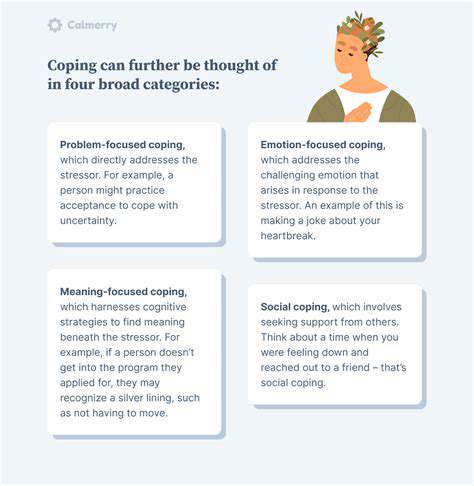How to Create a Relaxing Bedtime Routine for Better Sleep
Nourishing Your Body for Better Sleep: Healthy Habits for a Peaceful Night
Prioritizing a Balanced Diet for Better Sleep
A diet rich in whole foods, including fruits, vegetables, lean proteins, and whole grains, can significantly impact your sleep quality. These nutrient-dense foods provide sustained energy throughout the day, avoiding the energy crashes that can disrupt sleep patterns. Limit processed foods, sugary drinks, and excessive caffeine intake, especially in the hours leading up to bedtime. Consuming a balanced meal several hours before sleep can promote better digestion and reduce discomfort that may interfere with a restful night's sleep.
Conversely, a diet lacking essential nutrients can leave you feeling sluggish and tired, making it harder to fall asleep and stay asleep. Focusing on a balanced diet can improve your overall well-being and contribute to better sleep hygiene.
Managing Stress and Promoting Relaxation
Stress is a significant sleep disruptor. Chronic stress can lead to racing thoughts and a heightened state of alertness, making it difficult to unwind and transition into sleep. Implementing relaxation techniques, like deep breathing exercises, meditation, or progressive muscle relaxation, can help calm your mind and body, preparing you for a peaceful night's sleep.
Finding healthy ways to manage stress during the day, such as engaging in hobbies, spending time in nature, or practicing mindfulness, can also contribute to a more relaxed state in the evening, making it easier to drift off to sleep.
Establishing a Consistent Sleep Schedule
Maintaining a regular sleep-wake schedule, even on weekends, helps regulate your body's natural sleep-wake cycle, also known as the circadian rhythm. This consistency signals to your body when it's time to sleep and wake up, promoting better sleep quality. Going to bed and waking up at the same time each day, even when not feeling tired, can significantly improve your sleep patterns over time.
Creating a Conducive Sleep Environment
A comfortable and dark sleep environment is crucial for a good night's rest. Make sure your bedroom is dark, quiet, and cool. Invest in blackout curtains, earplugs, or a white noise machine to block out distractions. A comfortable mattress and pillows are also essential for a supportive sleep experience. Create a relaxing atmosphere by using calming scents, like lavender, to further enhance your sleep environment.
Incorporating Physical Activity for Improved Sleep
Regular physical activity is beneficial for overall health and can significantly improve sleep quality. Engaging in moderate-intensity exercise during the day can help tire your body out, making it easier to fall asleep at night. However, avoid intense workouts too close to bedtime, as this can have the opposite effect and keep you awake.
Finding activities you enjoy, such as walking, swimming, or cycling, can make exercise a more enjoyable and sustainable part of your routine. Remember to prioritize consistency and listen to your body's signals.
Hydration and Avoiding Stimulants Before Bed
Adequate hydration throughout the day is important for overall well-being, and this includes staying hydrated before bed. However, avoid excessive fluid intake close to bedtime to prevent frequent trips to the bathroom that can disrupt your sleep. Consuming enough water throughout the day helps regulate bodily functions, including sleep.
Similarly, avoid consuming caffeine, alcohol, and nicotine in the hours leading up to bedtime. These substances can interfere with your sleep cycle and make it harder to fall asleep and stay asleep. Making these adjustments can significantly improve your sleep quality and overall health.










